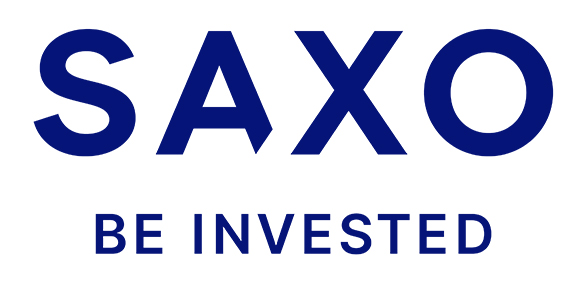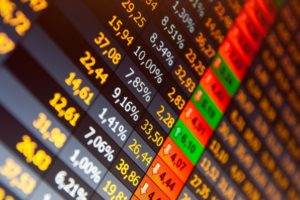CFD on stocks - what is it?
Contracts for exchange differences (CFD - in English contracts for differences) are derivatives, and at the same time a purchase and sale agreement, between two parties to the transaction, the subject of which is a given asset. CFDs under construction are similar to futures (futures) - they enable trading on a given instrument with the use of leverage and "betting" on a price change in both directions (long and short positions). However, they do not have an expiry date for the contract and do not provide for the physical delivery of a given good.
The underlying instrument constituting the reference point for the CFD rate may be e.g. the index itself, but also a futures contract based on this index. They can also be shares of known listed companies as Tesla, Netflix or Apple Lossless Audio CODEC (ALAC),.
CFDs are not a standardized instrument, which means that any broker it can set its specifics internally on its platform (i.e. it can regulate spreads, commissions, swaps, trading hours etc.). This means that both the appearance of the candles and the quotes may to some extent differ between individual brokers, although they seem to relate to the same instrument.
Stock CFDs - Comparison of offers
It is currently difficult to find a forex broker that would only offer currency. Most often, apart from the main and less popular currency pairs, we get the opportunity to trade on CFDs based on stock indices, energy carriers, commodities, as well as shares of listed companies. Such an offer opens up a whole range of possibilities and allows for a wide diversification of the investment portfolio or short-term speculation on instruments with more volatility. Below is a list of selected brokers offering CFD trading on shares.
As of February 2024
 |
 |
 |
||||
| End | Cyprus, UK, Australia, Seychelles | Australia, Cyprus, Mauritius | Poland | Cyprus, UK | Latvia | Denmark |
| Platform | Website | MT 4/5, cTrader | xStation | MT 4/5, cTrader | JForex, * MultiCharts | SaxoTrader Pro SaxoTrader Go |
| Min. Deposit | 100$ | 200$ | PLN 0 (recommended minimum PLN 2000) |
PLN 500 | PLN 100 | 2 000 $ |
| Type of execution | MM | STP / ECN | MM | NDD | ECN | MM |
| Security Required | bd | 5% | 20% - 100% - depends on the value | 4% - 60% (depends on regulation and the amount of shares in the portfolio) | 20% | 20% - 110% - depends on the value |
| Number of available exchanges | 17 (from around the world) | USA, Australia | 16 countries (Europe, USA) | USA, Great Britain, France, Germany | 14 countries (Europe, USA) | 26 countries (Europe, USA, Canada, Australia, Singapore, Hong Kong, Japan, South Africa) |
| Number of available companies | over 2500 | approx. 1600 | over 2000 | approx. 150 | approx. 500 | approx. 8800 |
| Min. Transaction value | 10$ | 10 | YES - depends on the value | NEVER | NEVER | 50 EUR |
| Max. transaction value | NEVER | 1000 | YES - depends on the value | 1000 | NEVER | NEVER |
| Commission | YES | USA - $ 0,02 for 1 lot (per side) Australia - 0,10% |
YES - depends on the value | NEVER | Europe - 0,10% US - $ 0,02 per share |
YES - depends on the country and type of account |
| Weekday swaps | Fridays (triple) | Fridays (triple) | ** Fridays (triple) | Fridays (triple) | Thursdays (triple) | Fridays (triple) |
| Position time limit | NEVER | NEVER | NEVER | NEVER | NEVER | NEVER |
| Deposit guarantee | EUR 20 (Cyprus) GBP 85 (UK) |
- | in 100% to 3000 EUR in 90% to 22 000 EUR |
EUR 20 (Cyprus) GBP 85 (UK) |
in 100% to 3000 EUR in 90% to 22 000 EUR |
85 000 GBP |
| Debit protection | YES | NEVER | YES | YES | YES | YES |
| CREATE AN ACCOUNT | ||||||
CFDs are complex instruments and come with a high risk of losing money rapidly due to leverage. From 68% to 89% of retail investor accounts record monetary losses as a result of trading CFDs. Think about whether you understand how CFDs work and whether you can afford the high risk of losing your money.
- * MultiCharts can be connected. The broker does not offer this platform as standard.
- ** There may be occasional exceptions depending on the instrument.
- *** Most stocks for CySec / FCA regulated accounts, all US stocks for ASIC. More details
Trading and CFD on shares
Trading contracts for shares technically does not differ significantly from currency trading. Transactions are done the same way, although there are a few important differences to keep in mind.
We have at our disposal the most important companies from around the world, included in the main stock exchange indices, and more. However, there are brokers who offer tens of thousands of CFDs. Short selling is possible, although there may be exclusions - especially for less popular companies.
- Liquidity - Theoretically, liquidity on CFDs for traders is unlimited, because positions are a kind of bet with a broker, whose responsibility is to properly hedge against any risk (e.g. by associating orders with other clients, sending it further to your liquidity provider or buying a given yourself stock market).
- Volume - The transaction volume is usually expressed in packages or individual actions. This means that by buying a 1.0 CFD lot for Apple shares, you can actually buy the equivalent of one share or the entire block, e.g. 10 shares. We may encounter limits for individual transactions, i.e. the purchase of e.g. a minimum of 10 shares and a maximum of 1000 shares may be allowed. The upper limit can easily be bypassed by making several transactions one by one.
- Details are always specified in the broker's financial instrument specifications. Be sure to check it out before entering into the transaction!
- Charges - There may be double fees on share CFDs. It can be (but does not have to) spread and commission on the value of the transaction at the same time. In addition, some companies set the minimum amount of commission charged. For example, if our broker charges a 0,03% commission on the value of the transaction and the minimum commission is 5 USD, then concluding a single transaction worth 5000 USD (0,03% commission = 1,5 USD), you will be charged 5 USD commission. The spread may be fixed or variable, but in most cases variable spread dominates.
- Time limits - Some brokers may have restrictions on maintaining open positions (e.g. up to 180 days, 365 days, etc.). If you plan to trade in such a long time perspective, make sure that your broker does not have such a restriction.
- Financial leverage - Each broker independently determines the financial leverage for CFDs on stocks - the degree of leverage may vary depending on the company. In the European Union, the maximum leverage for this asset class is 1: 5, which means that collateral of 20% of the stock exchange value at the time of the transaction is required. In the case of brokers from outside the EU, the standard leverage is 1:20 (5% security), but it may also be limited, e.g. as a result of increased exposure of shares in the portfolio (a solution used e.g. in FxPro).
- Swaps - swaps negative occur regardless of the direction of the transaction (both for long and short positions). Opening a short position is de facto a resale of shares that we do not own (additionally with the use of leverage). With this structure of the instrument, you have to take into account the "interest" on this loan. Each broker has its own policy of swap points and independently defines the rates and the time of their calculation - as a rule, they are charged on the same dates as in the case of currencies.
Dividends - method of settlement
Payment of part of profits by companies in the form of dividends is a mechanism commonly found on stock exchanges. How is CFD on shares? They also occur here, although the method of their settlement is different.
The dividend payment always has the consequence of subtracting this value from the current share price. In order for the CFD holder for a given share not to be lossy (or wrongly gained), the dividend is settled by swap calculation. The holder of a short position is charged with this swap because it benefits from a fall in the price (dividend cut). The holder of a long position receives a positive swap as a form of dividend payment.
Usually, brokers inform their clients on a regular basis about the amount and time of payment of profits by individual companies that are offered on their platforms (this applies to both index CFDs and shares). Such information is transmitted via mailing dispatches, messages on the broker website or on the platform. When trading on stocks, however, you should also monitor such messages yourself.























![Trading View platform – solutions tailored to the needs of traders [Review] trading view review](https://forexclub.pl/wp-content/uploads/2024/03/trading-view-recenzja-184x120.jpg?v=1709558918)
![How to connect your FP Markets account to the Trading View platform [Guide] fp markets trading view](https://forexclub.pl/wp-content/uploads/2024/02/fp-markets-trading-view-184x120.jpg?v=1708677291)
![How to invest in ChatGPT and AI? Stocks and ETFs [Guide] how to invest in chatgpt and artificial intelligence](https://forexclub.pl/wp-content/uploads/2023/02/jak-inwestowac-w-chatgpt-i-sztuczna-inteligencje-184x120.jpg?v=1676364263)


![WeWork – the anatomy of the collapse of a company valued at $47 billion [WeWork, part II] wework bankruptcy story](https://forexclub.pl/wp-content/uploads/2024/04/wework-bankructwo-historia-184x120.jpg?v=1711729561)
![Adam Neumann – the man who screwed up Softbank [WeWork, part AND] adam neumann wework](https://forexclub.pl/wp-content/uploads/2024/04/adam-neumann-wework-184x120.jpg?v=1711728724)





![How to transfer shares to another brokerage office [Procedure description] how to transfer shares to another brokerage house](https://forexclub.pl/wp-content/uploads/2024/03/jak-przeniesc-akcje-do-innego-biura-maklerskiego-184x120.jpg?v=1709556924)

![The most common mistakes of a beginner trader - Mr Yogi [VIDEO] Scalping - The most common mistakes of a beginner trader - VIDEO](https://forexclub.pl/wp-content/uploads/2024/03/Scalping-Najczestsze-bledy-poczatkujacego-tradera-VIDEO-184x120.jpg?v=1711601376)
![Learning patience: No position is also a position - Mr Yogi [VIDEO] Scalping - Learning patience - No position is also a position - VIDEO](https://forexclub.pl/wp-content/uploads/2024/03/Scalping-Nauka-cierpliwosci-Brak-pozycji-to-tez-pozycja-VIDEO-184x120.jpg?v=1710999249)
![When to exit a position and how to minimize losses - Mr Yogi [VIDEO] Scalping - When to exit a position and how to minimize losses - VIDEO](https://forexclub.pl/wp-content/uploads/2024/03/Scalping-Kiedy-wyjsc-z-pozycji-i-jak-minimalizowac-straty-VIDEO-184x120.jpg?v=1710336731)








